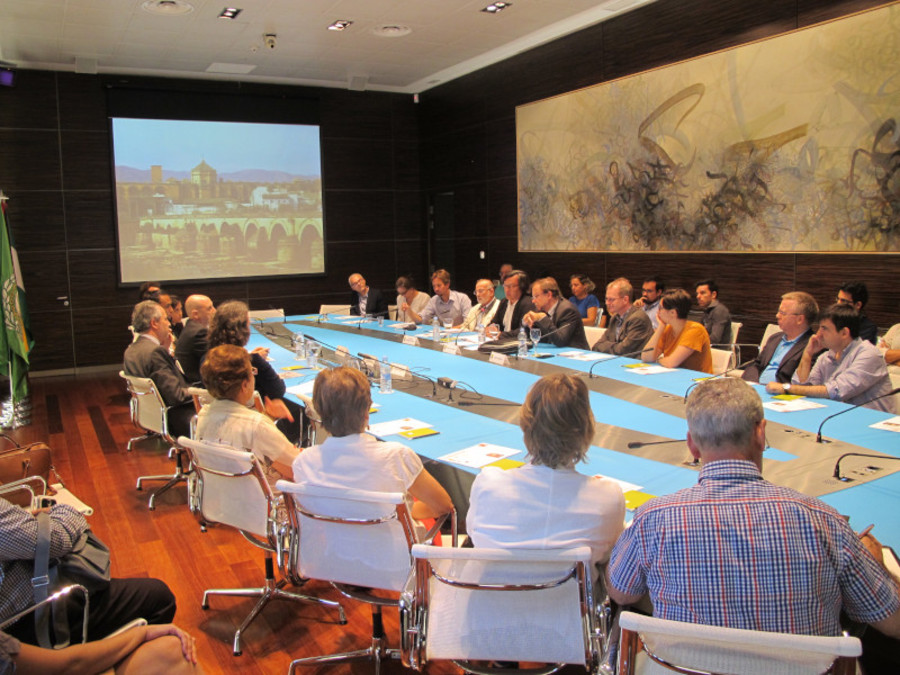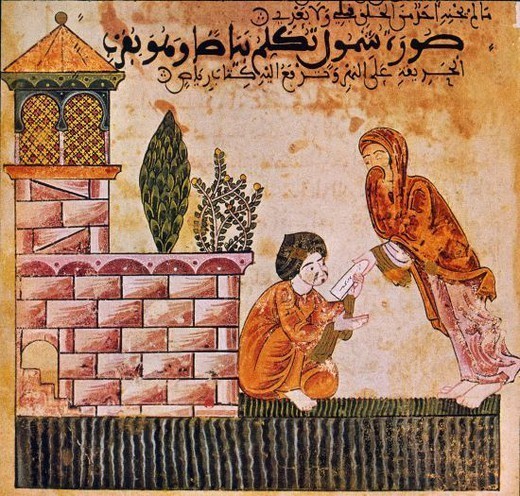Articles
First Meeting of Researchers in Arab and Islamic Studies in Spain
Article author: Daniel Gil-Benumeya - FUNCI
Date of publication of the article: 17/09/2019
Year of publication: 2019
In September 9th and 10th, 2019, Casa Arabe hosted the Meeting of Researchers in Arab and Islamic Studies of Spain, aimed at the presentation and exchange of ideas on the current research projects focusing on this vast area of knowledge in Spain (frequently integrated within transnational frameworks). The importance, and difficulties, of this meeting relied on the multidisciplinarity of the researches involved (which range from philology to literature, philosophy, history, sociology, anthropology, political sciences, etc.), and the fact that they don’t always share any synergy, as, in spite of belonging to the Arabic and Islamic studies field, they respond to different specializations.
The meeting was possible thanks to the work of two researchers from the Institute of Languages and Cultures of the Mediterranean and the Near East (ILC-CSIC), Adday Hernández López and Jan Thiele. It was attended by eleven Spanish universities, as well as several research centers from the Spanish National Research Council (CSIC) and entities connected to the field of Arab and Islamic studies, such as the Islamic Library Féliz María Pareja, or Casa Árabe, hostess of the meeting.
The meeting was also attended by other figures and institutions linked to this area of study, among them, the Islamic Culture Foundation (FUNCI). In FUNCI, we are well aware of the importance of these initiatives that encourage a deeper collaboration among research institutions, universities and NGOs, and promote more comprehensive researches. To be aware of the progresses being made in this field is the best way of ensuring an efficient high quality collaboration, in line with the cultural and social goals of our Foundation.
The trans in the 21st century Arabism
The meeting’s general tone was characterized by the multidisciplinarity and the positive assessment of adopting joint and common perspectives. For instance, as a sign of the times, many of the projects’ presentations stressed their multidisciplinary nature and, more importantly, its emphasis on their trans nature: transnational, transcultural, transboundary… There was an honest desire to incorporate gender, and transcultural and hybrid dimensions, which have usually had little visibility in the sources and researches due precisely to their subaltern nature. It is the case, for instance, of the literary authoresses that have been kept in the margins of the Arab literary studies for geographical, linguistic, gender and class reasons, as explained by Mònica Rius (University of Barcelona) through the project Literary Cartographies of the Mediterranean (CALITME). This project aims at compiling, describing and analyzing this literary frontier of Arab roots, which don’t fit properly in the traditional literary classification by linguistic and national areas. It is also the case of the projects studying the characteristics of classic Arab-Islamic societies by applying a trans perspective, such as the project presented by Linda Jones (University Pompeu Frabra) on the “transcultural and gender identities and religious alterities in the Iberian Peninsula and the Mediterranean region during the Middle Age and the early Modern Age”. Or the Nazamer project, presented by Desirée López Bernal (University of Granada), whose goal is to reconstruct the history, memory, and social dynamics of the women that lived in the Nasrid kingdom of Granada and the Marinid kingdom of Fez (13th and 14th centuries), and which are underrepresented in the sources, in comparison with the social importance they really held. The project aims at identifying their contribution to the different areas of knowledge, their social status, their professions, and their diversity regarding social class, ethnic origin or religion.
From manuscripts to apps
Humanities are in good health. A proof of this is the project on “biblical and Greek, Arab and Latin patristic manuscripts”, presented by Pedro Mantas (University of Cordoba), which is a continuation of former projects on the recovery of the Arab-Christian manuscript heritage, and its relations with the language and culture of the so-called Fathers of the Byzantine Church. In a similar line, the project presented by Jan Thiele (ILC-CSIC, one of the meetings organizers) also worked on religious thought, focusing on the interactions between religion and faith and the theological discussions in the Islamic West during the Middle Age and the early Modern Age. This project studies mainly the development of the kalam or speculative theology in the Maghreb, focusing on its ash’ari branch, and relying on that period’s written production.
Susana Calvo Capilla University Complutense of Madrid), presented the project “Al-Andalus, art, science and contexts in an open Mediterranean”, which studies the important changes that took place in the Iberian Peninsula and the Middle East, in relation with knowledge, arts, ideas, and books.
Al-Andalus still holds, logically, an important space in the Spanish research. Maribel Ferreiro (ILC-CSIC) presented the project “Al-Andalus and the Maghreb in the Islamic East”, whose goal is to understand how, when and why did the Western knowledge (coming from Al-Andalus, and the current territories of Algeria, Morocco and Tunisia) spread across the Mashreq (the Arab world’s East). Also focusing in the study of transnational relations in the Middle Age, Susana Calvo Capilla University Complutense of Madrid), presented the project “Al-Andalus, art, science and contexts in an open Mediterranean”, which studies the important changes that took place in the Iberian Peninsula and the Middle East, in relation with knowledge, arts, ideas, and books. This is especially interesting when taking into account that these territories were managed by rival powers.
Many of these projects that focus on classic issues rely on new methodologies, especially digital tools that increase the possibilities and reach of the research. This is the case of the project on the microhistory of the Nasrid Granada, presented by Amalia Zomeño (ILC-CSIC).
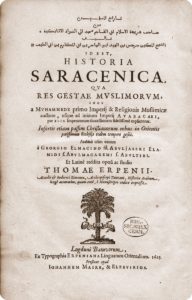 However, the biggest projects on digital humanities presented at the Meeting were those that form the Projects on Arabic and Islamic Studies Digital Network (ARISnet), launched in 2018. One of these projects is directed by Luis Molina (EEA-CSIC), who focuses on the network of Andalusi ulama and the structure of knowledge transmission. This is a classic topic, which acquires a wide range of new dimensions thanks to digital tools. Relying on the study of 11,600 Andalusi ulama, Molina explained how the transmission of knowledge was guaranteed through a redundant network structure (information that is transmitted and received through different channels at the same time), frequently provided through familiar contacts. This model, which prevents the loss of information due to the disappearance of network nodes, precedes digital networks centuries later. As part of this same ARISnet network, Miguel Ángel Manzano (University of Salamanca), and Helena de Felipe (University of Alcalá de Henares) presented “Cultural Geography of the Maghreb and Human Dynamics of the North of Africa (MAGNA)”, a project composed of two subprojects. The first one, on “cultural geography in the Modern and Medieval Islamic Maghreb”, aims at creating a database of historical name places in the Maghreb, from the Arab-Islamic conquest to the Modern age, by analyzing the available sources (written, oral, Arab, and non-Arab), which provide a concise information on every name place: location, etymology, historical data, texts, and the narrative surrounding it… The second project focuses on “population and landscape from a historical perspective”, that is, on human groups and their dynamics. Both researches aim at becoming a space of reference for specialists and all those interested in the history and geography of the Maghreb.
However, the biggest projects on digital humanities presented at the Meeting were those that form the Projects on Arabic and Islamic Studies Digital Network (ARISnet), launched in 2018. One of these projects is directed by Luis Molina (EEA-CSIC), who focuses on the network of Andalusi ulama and the structure of knowledge transmission. This is a classic topic, which acquires a wide range of new dimensions thanks to digital tools. Relying on the study of 11,600 Andalusi ulama, Molina explained how the transmission of knowledge was guaranteed through a redundant network structure (information that is transmitted and received through different channels at the same time), frequently provided through familiar contacts. This model, which prevents the loss of information due to the disappearance of network nodes, precedes digital networks centuries later. As part of this same ARISnet network, Miguel Ángel Manzano (University of Salamanca), and Helena de Felipe (University of Alcalá de Henares) presented “Cultural Geography of the Maghreb and Human Dynamics of the North of Africa (MAGNA)”, a project composed of two subprojects. The first one, on “cultural geography in the Modern and Medieval Islamic Maghreb”, aims at creating a database of historical name places in the Maghreb, from the Arab-Islamic conquest to the Modern age, by analyzing the available sources (written, oral, Arab, and non-Arab), which provide a concise information on every name place: location, etymology, historical data, texts, and the narrative surrounding it… The second project focuses on “population and landscape from a historical perspective”, that is, on human groups and their dynamics. Both researches aim at becoming a space of reference for specialists and all those interested in the history and geography of the Maghreb.
The European Quran
With a foot both on the perspectives of digital humanities and the transcultural and cross-border, we find Mercdes García-Arenal’s European project on the “European Quran” (EuQu), funded by the European Research Council through one of its prestigious Synergy Grants. This ambitious project is based on the idea that the Quran has been interwoven for centuries with the intellectual heritage of Europe. Not only because Europe has counted with many historical Muslim communities, which translated and commented its text many centuries ago, but also because the Quran has been used in many political and religious contexts by European thinkers, in situations and topics not necessarily related with Islam. Not long ago, we published the reflections of John Tolan (one of the main researchers of the EuQu project) on the figure of Muhammad. García-Arenal pointed out how the Quran had been used both to construct and deconstruct the frontiers between Christianism, Judaism and Islam, and how it had an essential role in the emergence and consolidation of the European Enlightenment. With this purpose, the project aims at creating a database that gathers all the Quran and tafsir (exegesis) historically produced in Europe, all the editions and translations of the book, and the texts written by European authors on the subject.
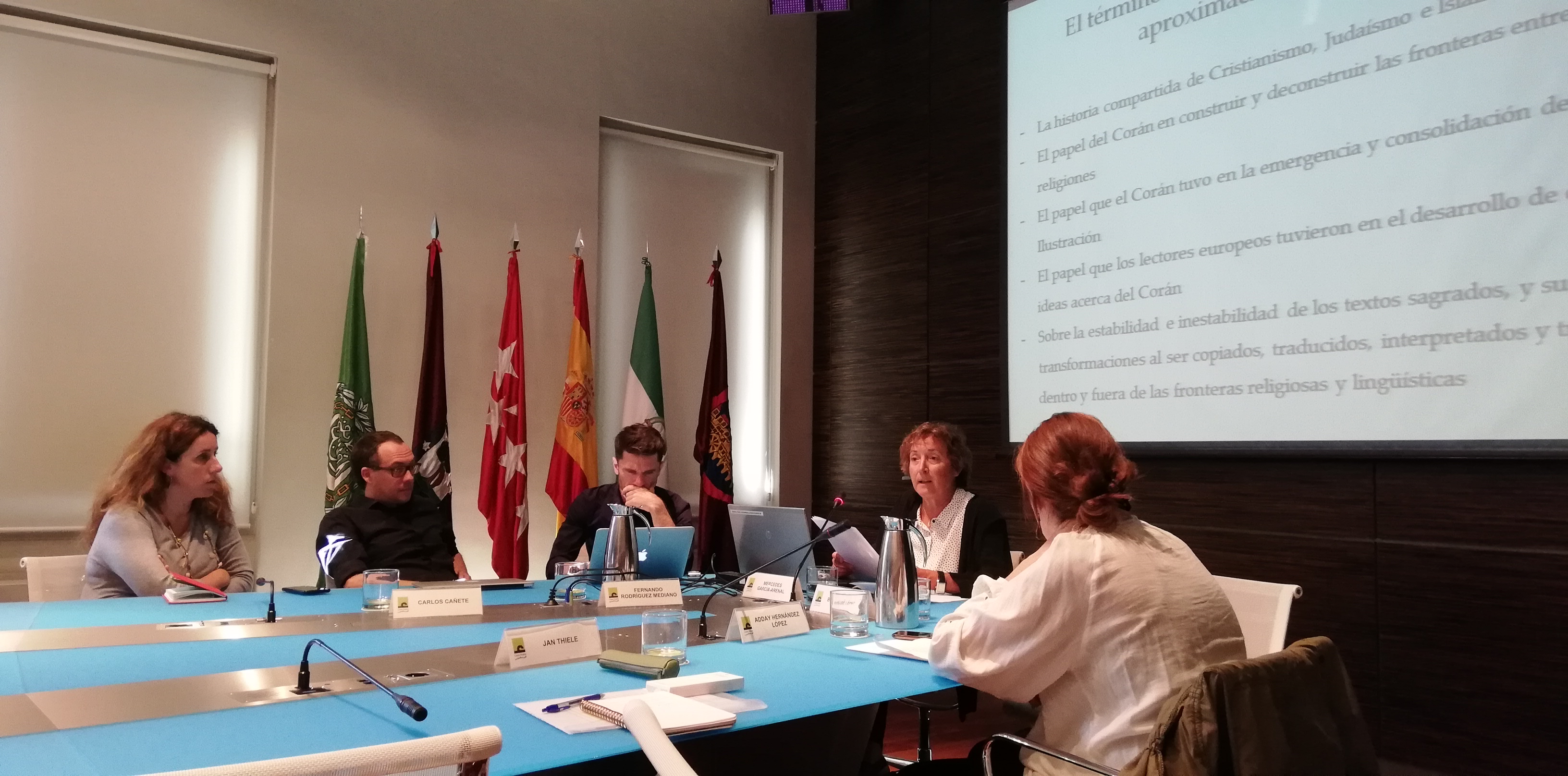
In other projects, the digital is not only a tool, but also the object of research. It is the case of the project presented by Mayte Penelas (EEA-CSIC), “Mediating Islam in the Digital Age” , or “The protection of heritage in places in conflict”, presented by Araceli González Vázquez (IMF-CSIC).
Between tradition and the present
Several projects focus in what could be considered the continuity or projection of the traditional universe in the current times. For instance, Araceli González Vázquez (IMF-CSIC) surprised the audience with a project focusing on the “anthropological study of interspecific relations in Morocco, Ceuta and Melilla”. The project analyzes the current social practices in the relations between humans and non-humans, a category that comprises animals and the yennun or genies, which are very present in the popular beliefs. With a focus on the same geographical area, we find the documentation work of Rachid el-Hour (University of Salamanca), which delves on the lives and traditions surrounding the awliya (the friends of Allah), whose mausoleums and memories are part of the physical and cultural landscapes of Morocco. El-Hour explained the difficulties of his fieldwork, in part due to the controversies that surround this traditional practice. Likewise, we find the project coordinated by Montserrat Benítez (EEA-CSIC) on the “social varieties in the variations spoken in the vernacular Arab of Morocco”. A linguistic study that analyzes the variations in the use of the Moroccan dialect by different social groups, which also takes into account the geographical elements.
Part of the research interest focused on the perceptions and representations of the “other”, which find their expression in the orientalism, Africanism, or Islamophobia.
In the field of geopolitics, we find the project on “resilience of authoritarianism, clash of Islamisms and intensification of sectarianism in the Middle East and the Maghreb”, presented by Ignacio Álvarez-Ossorio (University of Alicante), and the project “Crisis and local and transnational dynamics in the Western Mediterranean: sociopolitical changes, mobilizations and diaspora”, presented by Ana Planet (University Autonoma of Madrid).
The visions of the “other”
Part of the research interest focused on the perceptions and representations of the “other”, which find their expression in the orientalism, Africanism, or Islamophobia. During the Meeting, several projects revisiting orientalism were presented, whose aim is to transcend its notion as a tool of European domination on the colonized societies of the “East”. Thus, Fernando Rodríguez Medrano (ILC-CSIC) presented a project on the “influence of the Eastern scholarship in the development of a [Modern] critical thought”, which explains how a sector of the European scholar community defended the need to know the Arab language and its wide literary production, not as a way of domination, but as a means to get to know themselves and to gain access to a universal knowledge. This idea, in the Spanish case, mixes with the debate on the place of Al-Andalus in the Spanish history, and, up to which point, Arab elements should be considered something national or foreign. This point was developed by Carlos Cañete (UAM), in relation with his project on the historicization of the Spanish Africanism, which is usually considered –somewhat superficially– as a local variation of the European orientalism. Cañete showed that this Africanism is linked with a long intellectual tradition that considers that there is an original link between the cultural and the human in the Iberian and North African societies.
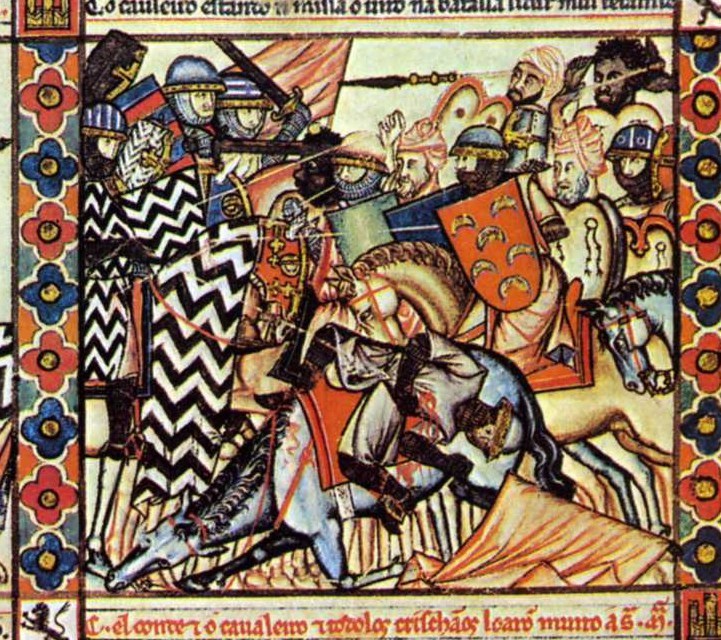
Fernando Braco López (UAM), specialist in the history of Islamophobia and the controversial anti-Muslim Spanish and European tradition, stressed the existence of this historical ambiguities, and the processes of reframing carried out through some of these narratives in order to align them with schools of thought different from those of their authors (is the case, for example, of Jiménez de Rada). Bravo explained that, contrary to what may appear at first, there isn’t a link between the Medieval Islam-Christian controversies existing in the Iberian Peninsula, the narratives of Modernity, colonialism, and today’s Islamophobia. Quite the opposite, during all these periods, its narratives show important variations and crossed perspectives. Santiago Palacios (UAM) referred to the apologetic narratives on the “religious violence in the Peninsula’s Middle Age”, and, in particular, to the dialectic of confrontation between Christians and Muslims. The project Confrontatio, in which he’s taking part, studies many speeches from both perspectives, focusing on the actors, influences, and the many goals they pursued, which could aim at justifying this violence or at condemning it. Likewise, Francisco Javier Moreno Díaz del Campo (University of Castilla La-Mancha) delved on the historicization of the anti-Muslim controversies during the Spanish Modernity, when it takes place in a situation of non-equivalent forces, that is, when it is carried out against minorities. This is the goal behind his project on the pre-Orientalist images of Muslims in the Iberian Peninsula, prior to Orientalism and its Mediterranean links.
Bravo explained that, contrary to what may appear at first, there isn’t a link between the Medieval Islam-Christian controversies existing in the Iberian Peninsula, the narratives of Modernity, colonialism, and today’s Islamophobia.
Establishing a link between the history of representations and today, two projects were presented that aim at having a social impact that transcends the academic field. The researcher Laura Galián (University of Granada) presented “RETROPEA: a project to promote religious tolerance and peace through History”. By relying on historical knowledge as a tool to reflect on the future, this project, promoted by the Catholic University of Lovaine, analyzes the historical initiatives of peace building and conflict resolution in the Christian, Muslim and Jewish traditions, and their possible links with the current times. The Meeting was closed by Luz Gómez (University Autonoma of Madrid), who presented the innovative project on the “representation of Islam in the glocal Mediterranean”, launched by the research group on Arab ideologies and cultural expressions (EXCUL). The neologism glocal, which links the global and local, reflects the will –present throughout the whole Meeting– to reclaim “the hybrid, at a time where the essences are being proclaimed”, as the IEXCUL explains.
A metadebate on research and the Academia
It was, in fact, Luz Gómez who closed the Meeting by inviting to reflect and debate on the difficulties of researching in Spain, as well as the malpractices commonly found. This subject was frequently referenced to during the Meeting, explicitly or implicitly. The many voices heard agreed in their negative perception of the Administration and the Academia’s management, the underestimation of certain research fields, the precariousness and job insecurity, and the personal conflicts and rivalries commonly found in the university departments. The participants reminded that this Meeting’s goal was to try to substitute them with dynamics of cooperation, the creation of synergies and the optimization of common resources. They were, therefore, determined to organize this meeting periodically in the future.
Translation: Alfonso Casani


